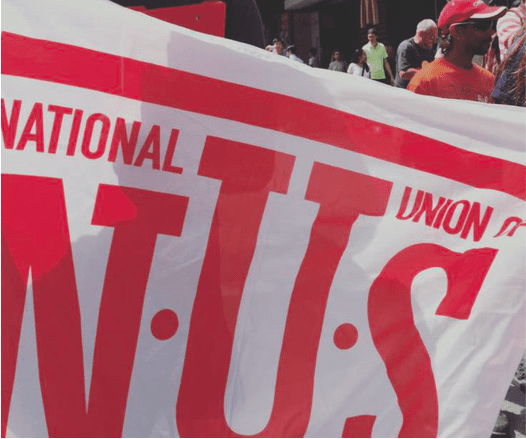Those who are yet to experience the madness of the National Union of Students national conferences are not so secretly excited. Soon they will descend on the playground of every serioufes student politics operative.
The older hands, those who have done this a few times and been in the midst of their fair share of campaigns, elections and scandals, are rolling their eyes and shaking their heads.
‘Are you mad?’ they ask.
The NUS is always contentious. It is either seen as the most useful body to organise and campaign for causes which affect students and young people, or it is seen as an arcane, ingrained mess, three parts factionalism and one part tribalism. Sprinkle ideology as required.
Two tickets fought it out on the NUS in elections this year. Activate your ANUSA fielded general representative candidates and was led by prominent campus Labor Right figure and NUS ACT state branch president, Nick Douros.
Ashish Nagesh, the treasurer of the ANU Liberal Club, led the Stand Apart ticket, on a campaign of masterful doublethink. While opposing ANU’s involvement with the NUS he also ran as an NUS delegate, and would have been elected on preferences if there was just one more spot.
Instead, the ANU Students’ Association will be sending Cameron Allan, Tess Masters, Harry Needham, Howard Maclean and Freya Willis. It remains to be seen whether they will act as delegates or observers.
But is NUS NatCon all student elections were about this year? Or were we actually interested in our campus?
Evidently so. Passions for the NUS surely didn’t drive the highest voter turnout in a decade.
More than 2,000 undergraduate students turned out for the elections, with Lift ANUSA’s Eleanor Kay receiving 1,114 votes to be elected the next ANUSA president on first preferences.
Kay, who had served this year as vice president, said during the campaign that she was ‘objectively the most qualified person to be president’ while running on a status quo campaign that sought to continue the work of the current executive.
One student politics operative reckons this was a stroke of rhetorical genius. It did a ‘really, really, good job of conveying Lift’s policies.’
‘People valued that experience and people got around that rhetoric,’ they said.
And there was an abundance of rhetoric you could have got around during the campaign. Shake Up gave their policies the BuzzFeed treatment while Lift took to Tinder to connect with potential voters in a campaign which at times didn’t seem to sleep.
In an age of internet saturation, when political tiffs can play out totally in online spaces, what importance does physical, boots on the ground campaigning have?
One 2017 campaign veteran thought it is what gave Lift the edge. ‘It’s always good to have people on the ground, and I think the work that Lift did on the field is what helped them over the line,’ they said.
Schmidtposting, still known to many as Stalkerspace, risks being a ‘storm in a teacup’. One campaigner unfollowed the group, saying it was ‘too fucking stressful’ and engagement with tickets’ individual Facebook pages was a better indicator of the tenor of the campaign.
Though perhaps the biggest storm in a teacup of all is NUS National Conference, slated for 4 – 8 December in Victoria. It goes to show that despite all the sound and fury online, politics still really happens in person, face to face and on conference floor.
We acknowledge the Ngunnawal and Ngambri people, who are the Traditional Custodians of the land on which Woroni, Woroni Radio and Woroni TV are created, edited, published, printed and distributed. We pay our respects to Elders past and present. We acknowledge that the name Woroni was taken from the Wadi Wadi Nation without permission, and we are striving to do better for future reconciliation.
